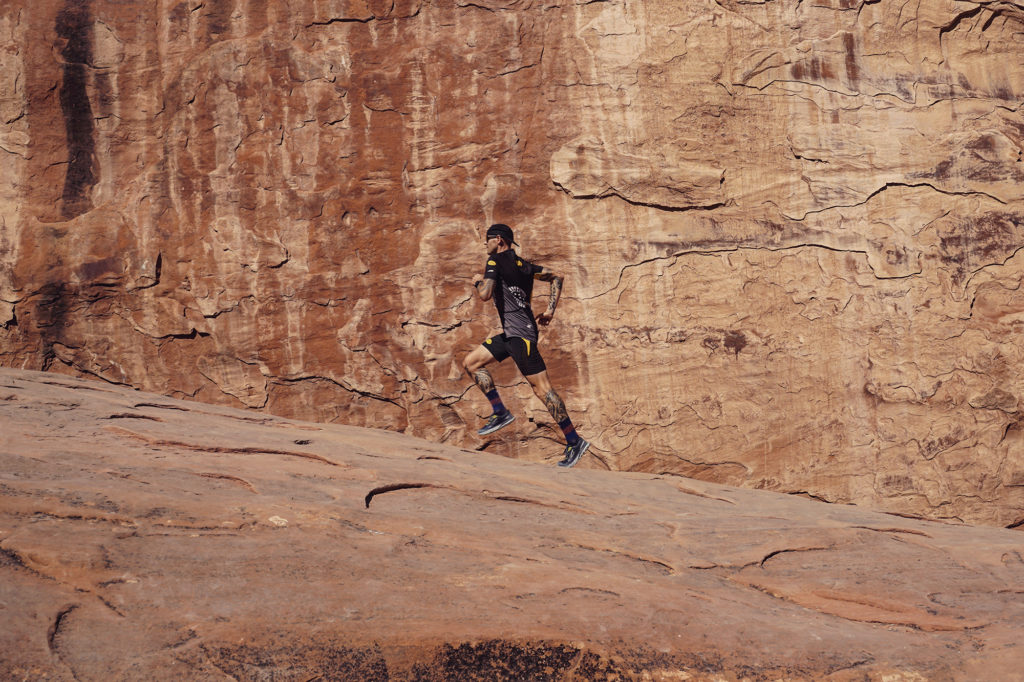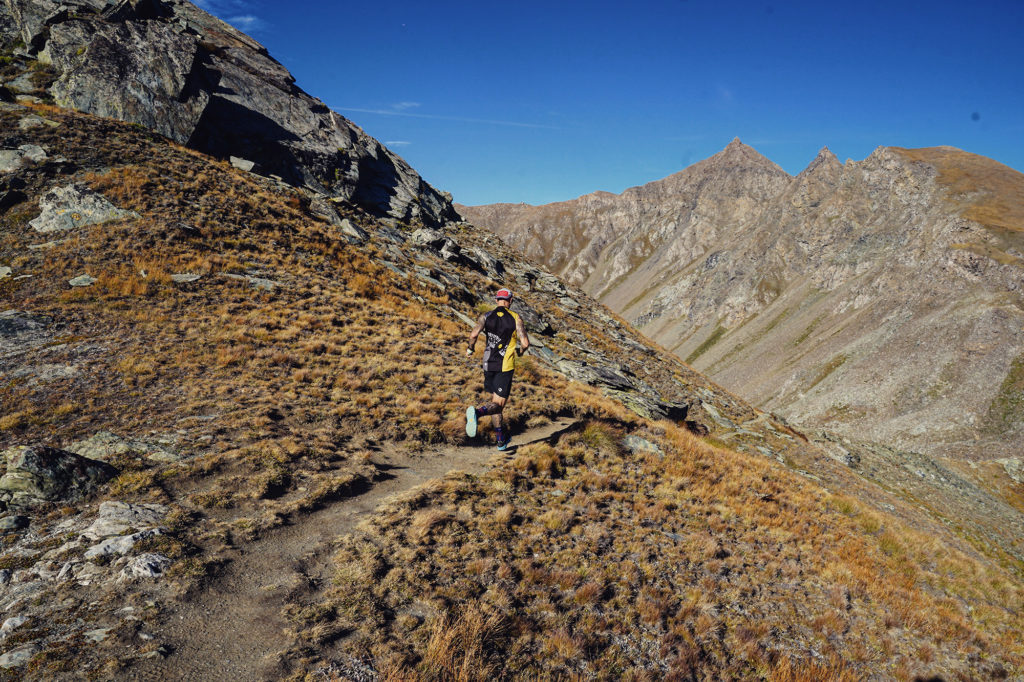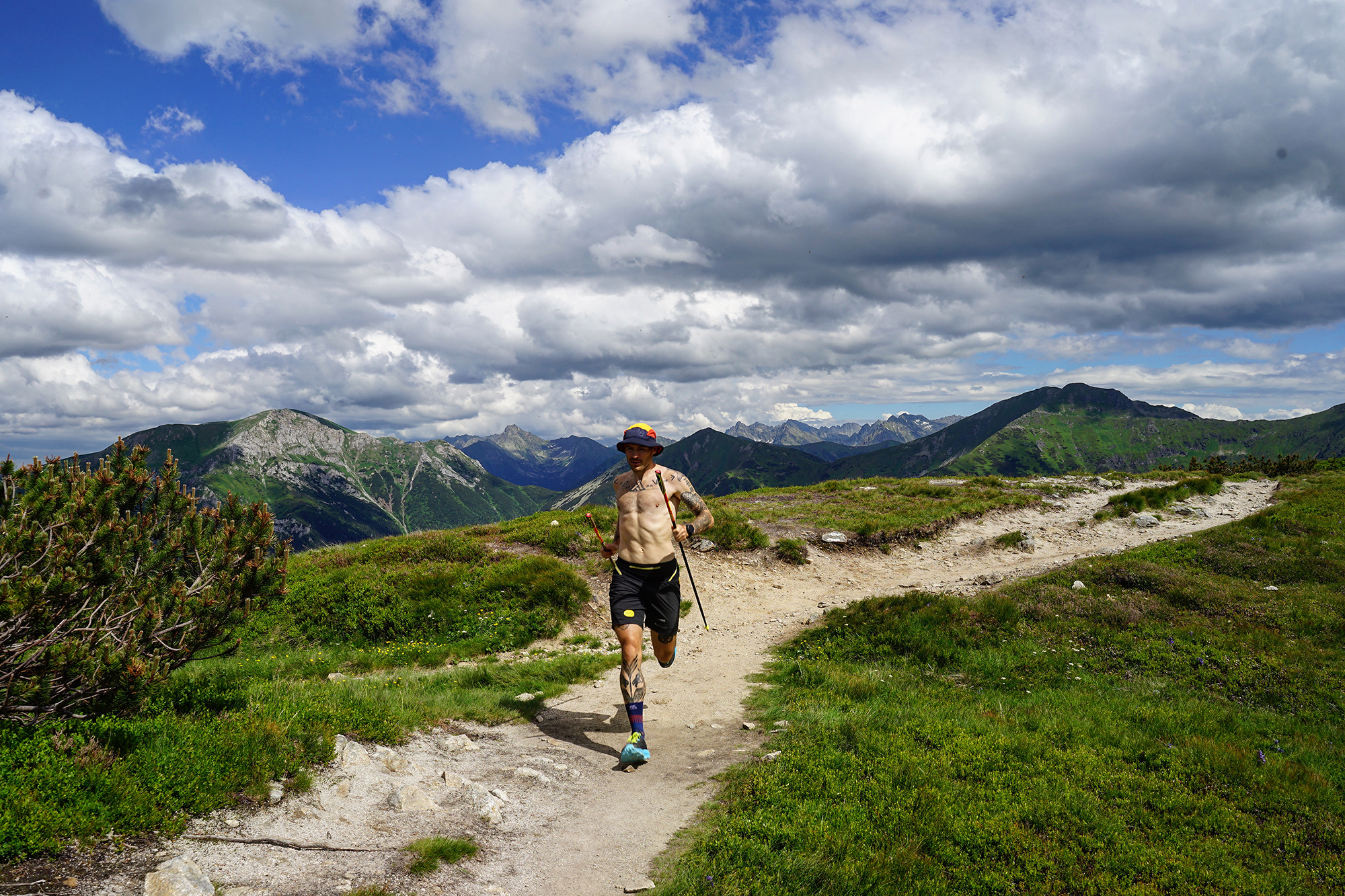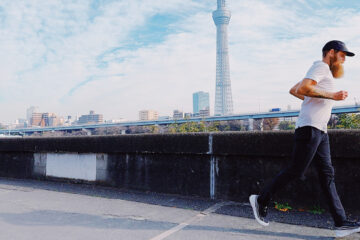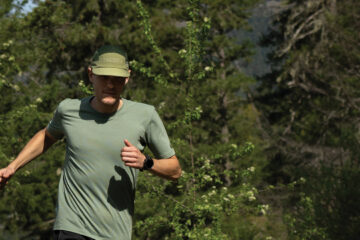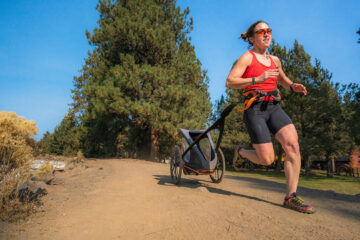after surviving war, gediminas returned home only to struggle with PTSD. he found running, and has built his life and family around it.
words: pierre-alexandre cardinal & gediminas grinius
shots: gintare grine
Home can be a fleeting concept. It can be as simple as the physical features occupied by your family but can also get a lot more complicated. After a tour as a military analyst for NATO in Iraq, Gediminas Grinius had to find his way back home. And it became a long quest leading him from his home country of Lithuania to some of the highest peaks and most legendary trails in the world. But it all started when, after surviving the hell of war, his life took a turn for the worse.
Gediminas went back home, sure, to the construction situated in Lithuania. But he was restless, he felt unnecessary there and wanted to go back on a mission, paradoxically terrified by the very thought of it. Silence became oppressive, the shutting of doors had him down to the floor. The smallest of argument escalated quickly into verbal abuse towards his family. He survived war, but he was scarred by it and took it out on himself and his family. Home was not home anymore, he felt he was a stranger even with his family. The way back home, he figured, would be longer than that leading from Al-Diwaniyah to Lithuania. Post-Traumatic Stress Disorder (PTSD) is what they called it.
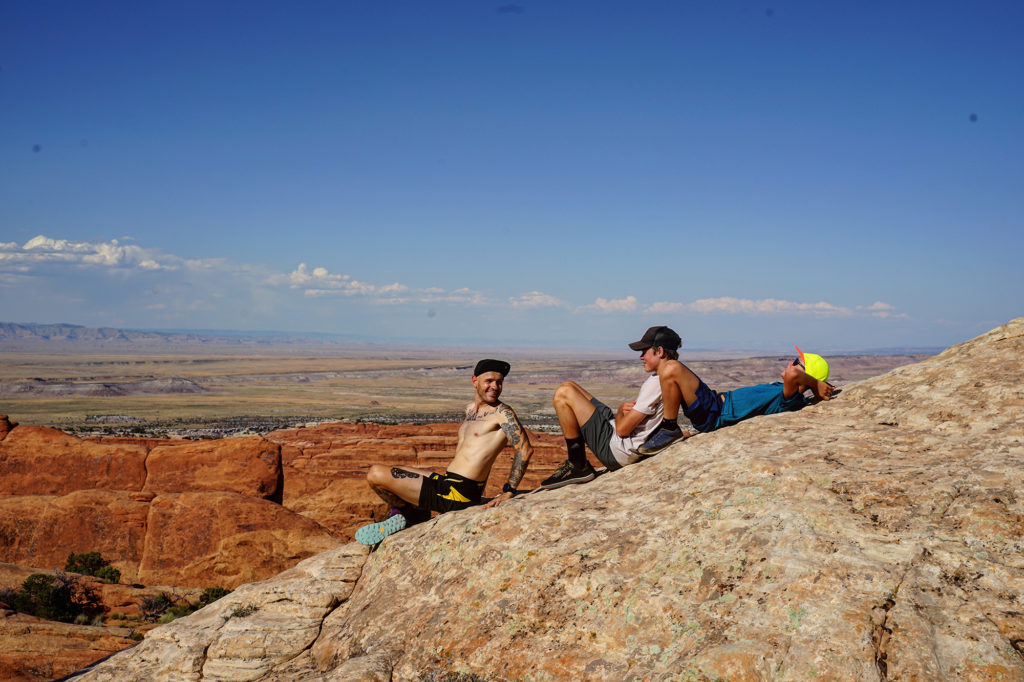
Some of his brothers-in-arms from the military found solace in drugs and alcohol. Some went back. But, for Gediminas, none of this would lead him to where he wanted to be, with his family, and that is when he discovered running, first as a medical and recreative outlet, until he found out that people actually would run and get lost in nature and the mountains. Then he attempted the mountain running world championships, training for it mostly in his flat-as-a-crepe home country of Lithuania. A humbling experience, discovery of a new way, of life, of being a happy place, and a path leading somewhere.
Running became a kind of meditation that allowed him to get lost in his thoughts for long periods of time and learn to accept himself and his experience. And that is when the idea of Trail Running Factory – a virtual hub for coaching and organizing training camps that have an aura of family reunion – his enterprise, came to life. And little did he know that, on this path, following the trails, his family would expand to include people from around the world through which he would share a passion for running, a philosophy of training, but also of life and a deep reverence for nature and the outdoors.
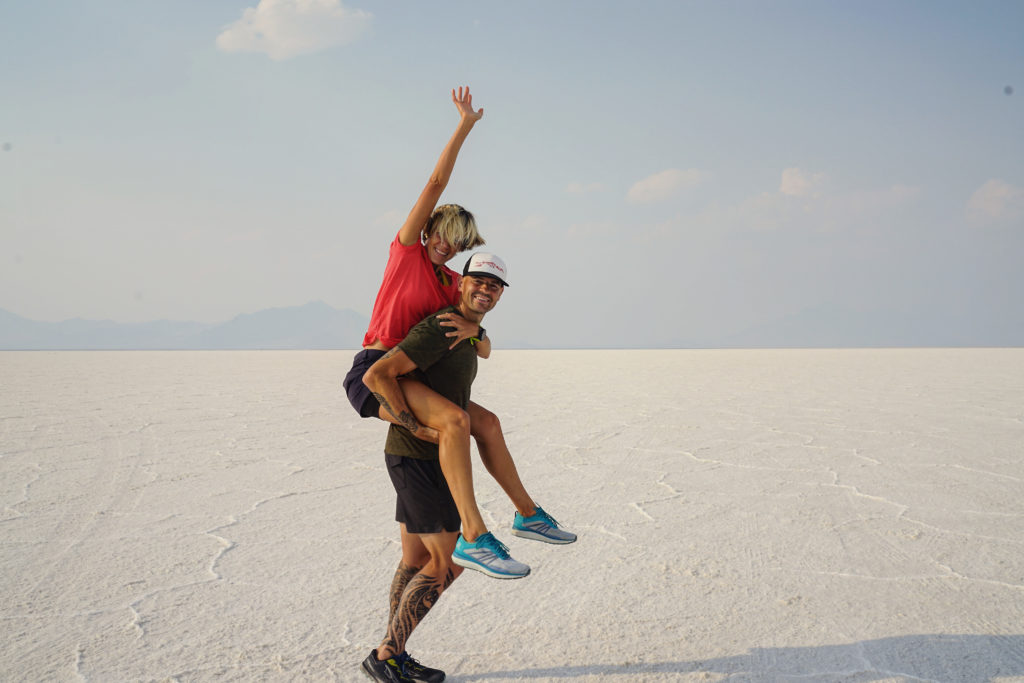
The decision to leave the stability of a military career that had taken a heavy toll on his very sanity, down to his very feeling of “home”, was still disquietingly difficult to make. Indeed, the change from a stable income to the quasi-bohemian lifestyle of the trail runner and coach was to be a big change. But, Gediminas knew, with the support of his wife, that he had to, for himself as much as for his family. He wanted to show his sons, through his actions, what really mattered in life; family, a sense of home, and a deep-seated respect for nature and the mountains. And the mountains were where his life was meant to be.
A few years into his new lifestyle, the global Covid-19 pandemic has had a huge impact on him. However, it is stoically that Grinius confesses that although the current situation has impacted his enterprise and mission, it has given him time to focus on developing his remote/online coaching. Moreover, it has also provided him with a good break after his attempt at setting a new record for the Grand Slam last year – the completion of 4 of the legendary 5 original American 100 miles trail races (Old Dominion 100, Western States 100, Vermont 100, Leadville 100 and Wasatch 100) in one calendar year.
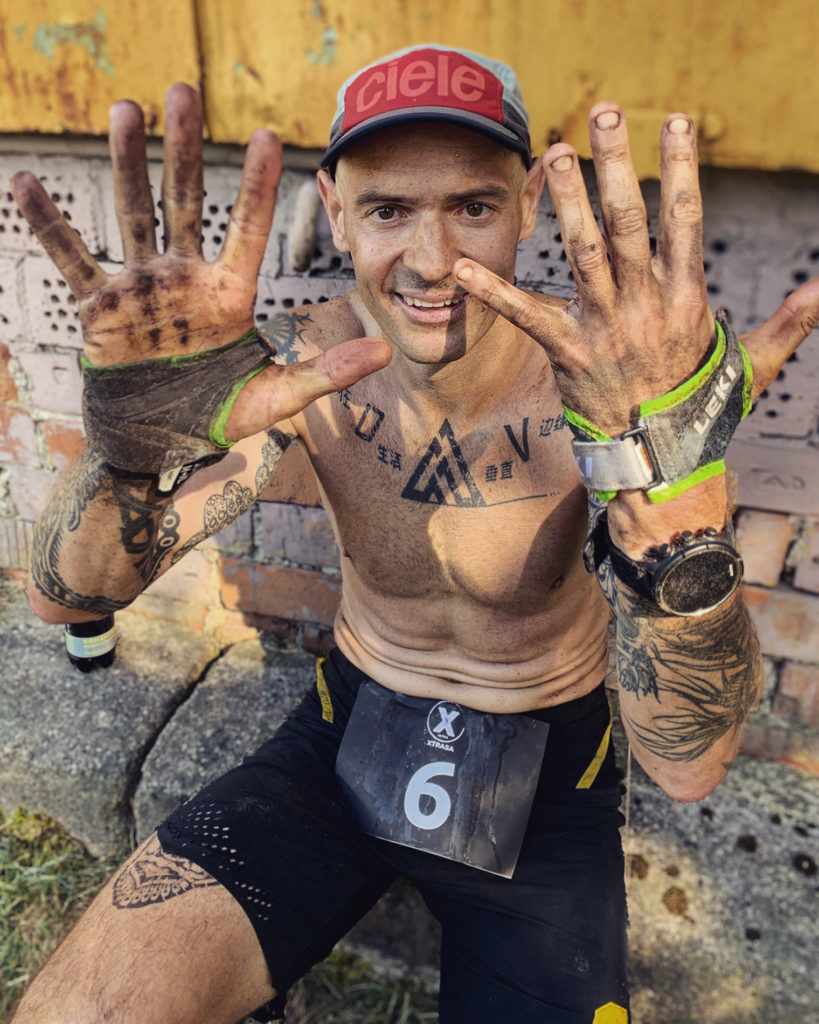
It has given him time and perspective as to how his past experience as a military analyst has come to his service, refined through his new lifestyle, to impact his coaching and training style. For Gediminas, the key for runners and endurance athletes is to “run with their brain”, and to toughen, sharpen and harden the mind. This entails, in his training, a more analytical view and broader perspective on and an awareness of where he stands, and where he is going in both life and training – a hard-learned lesson from his past life. For him, this includes being in tune with his body to prevent injury development in both body and mind and modulate his training intensity and cross-training accordingly. For Grinius, intensity is not the central component of training, whereas enjoyment and mindfulness are, and he endeavors to push this approach in his coaching style.
In that same way, his coaching involves a focus on strengthening a runner’s blind spots – or how to become better runners without running – through cross-training, weight sessions, and focused stretching and recovery. According to him, becoming a better runner requires, first and foremost, becoming a more athletic person in general. “Running with our brains” involves a better preparedness of body and mind, beyond merely running and one can clearly see this transpiring in his coaching memos. More often than not, consistency, low intensity and fun in training are key to an efficient training routine. Sometimes, Gediminas says, less is more, and “instead of hitting your pace charts, focusing on clocks – which can sometimes take joy away from running – it is better to instead focus on going out to the mountains each and every single day with a smile on your face.”
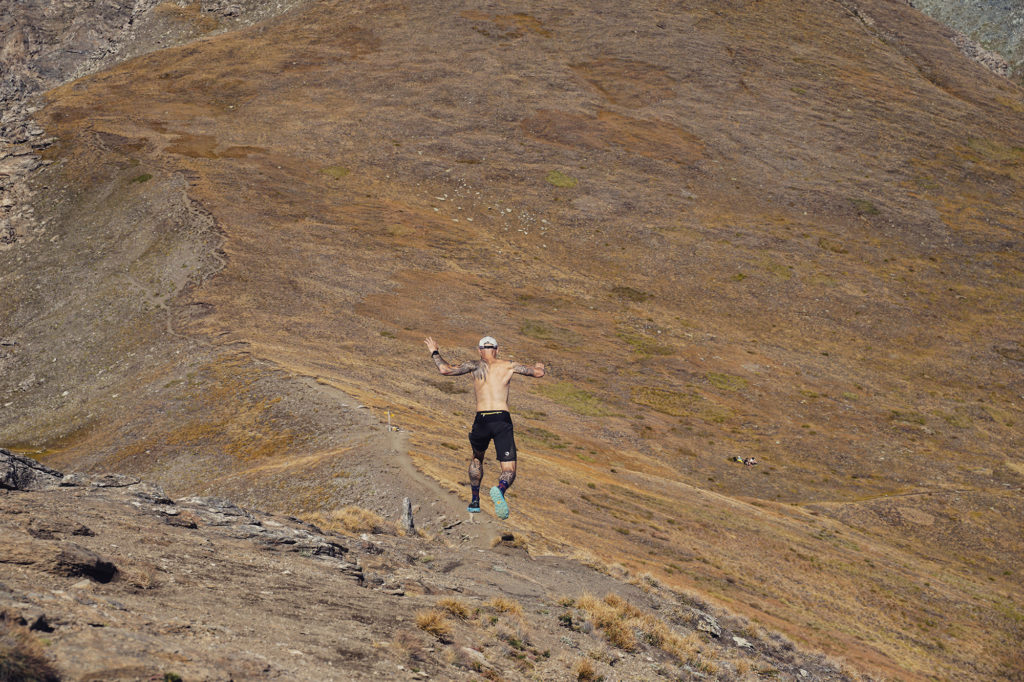
Central to his training and coaching style is the devotion and contagious deep respect he has for nature. His athletes, he says, become family, and through their interactions in Trail Running Factory, some of them even come to share in his perspective of nature as “religion”, and running as its form of spirituality. The training plans he provides are often accompanied by contemplative meditations that have the purpose of reminding runners of the importance of joy in training and respect for nature: “sun is shining, plants are growing, birds are singing, nature in all forms of life is still there, she did not go anywhere. Respect it, be patient, hurt less, hate less, heal more, listen more, learn more, slowly open your eyes and your ears, awaken your feelings, and you will see, hear, sense and understand all the beauty around you.”
For Gediminas, home is where family is, and more often than not, that leads him where the mountains are. Even though Gediminas surely stands among the elite of trail-running, his training, coaching, words and actions are all filigreed with something more than a constant series of races (although some of what he has sights on for the future is quite impressive; the fabled Tor des Géants, and the Patagonia Eco-Challenge). This fine watermark is the depth of the relationship he has developed with the sport, and the spiritual connection he has with the spaces he strides on. As he himself suggests; “mountains are healers, so visit them once in a while to clean, heal your soul and body. Listen to them as they have much to say and to share!”
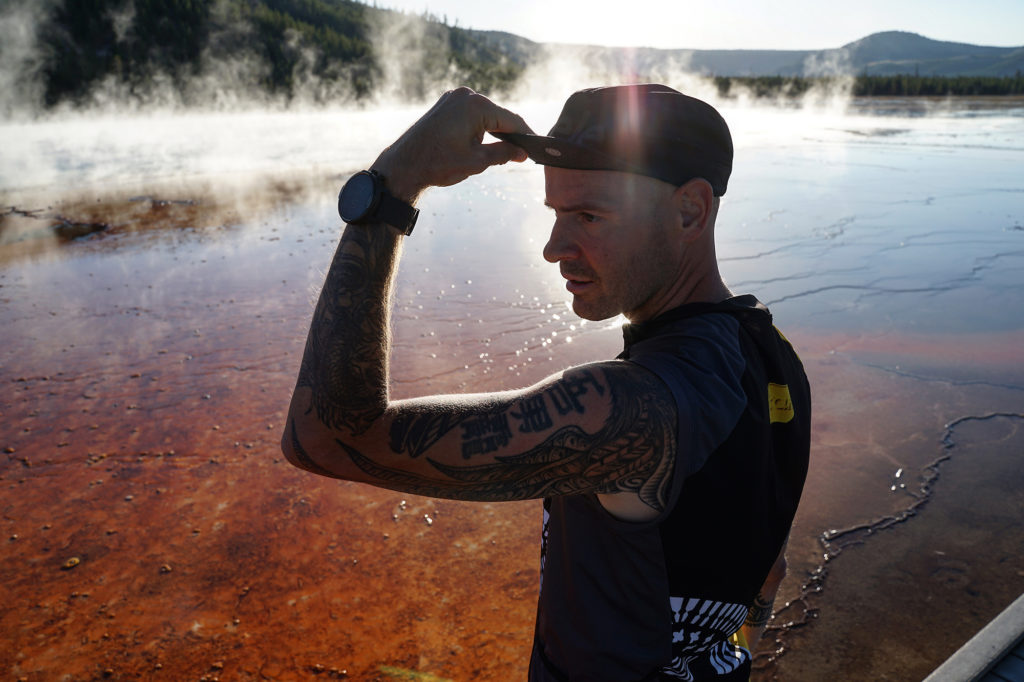
Gediminas confides that when he is out on a run, he recites mantras and prayers for mother nature and his family, the direct one as well as the extended one, and that is where running becomes somewhat of a religion for him. “Some people believe in god, I believe in running” he says, “it basically gives me feelings of gratitude for the world, and makes me want to become a better person.” And with Trail Running Factory, his goal is not necessarily to “manufacture” runners, but to try to introduce his extended family to his way, and to impart them with some of that love and deep reverence for the mountains. And the reason for that is simple; they are what healed him, and he wants to share that with those who want to listen.
After returning from Iraq, little did he know that, after some bushwhacking, he would find that literal trail-head where he would embark on his long way back home, through PTSD, a lot of trail running, and life-changing decisions that would finally bring him back to his family and to new horizons he had never even dreamed of. Running became his “teacher”, more than just a movement or sport, but a true connection between body, mind and soul. If he had to go back, he would do it all again, except he would have dedicated his life to running and coaching, to people and showing them the beauty of nature way earlier.
